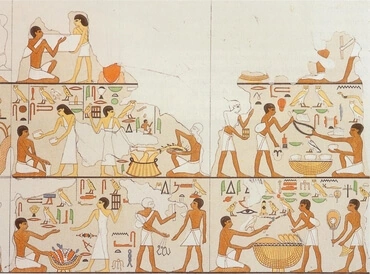Egito

Na Bíblia, Egito significa conhecimento e o amor ao conhecimento. Em bom sentido, isso significa conhecimento da verdade do Senhor através da Bíblia, mas em um sentido natural significa simplesmente conhecimento terreno a ser armazenado e possuído. E mesmo o conhecimento da Bíblia nem sempre é bom: se os aprendemos com o objetivo de torná-los úteis, então eles estão cheios de idéias angélicas. Mas elas são quando são aprendidas apenas por causa do conhecimento das coisas ou pela reputação de serem aprendidas.
Portanto, o Egito é um lugar onde você vai para aprender coisas, mas para se tornar celestial você tem que escapar do "saber" estéril e viajar para a terra de Canaã, onde o conhecimento é preenchido com o desejo interno de bem.
É interessante que quando o Egipto era governado por José, era um paraíso para o seu pai e irmãos. Isto mostra que quando a mente interna de uma pessoa governa na terra do aprendizado, ela pode aprender muito que é útil. Mas acabou surgindo um faraó que não conhecia José, e os filhos de Israel foram escravizados. O faraó representa a mente externa; quando está no comando, a excitação e a autocongratulação do saber pode reduzir a mente interna a um tipo de escravidão. A mente - como os filhos de Israel - acaba fazendo tijolos, ou falsidades feitas pelo homem a partir de aparências externas.
(Odkazy: Apocalipse Revelado 503 [1,3,5]; Arcanos Celestes 1461, 5580)
Arcana Coelestia # 5580
5580. 'Which they had brought from Egypt' means which had been obtained from factual knowledge. This is clear from the meaning of 'Egypt' as factual knowledge, dealt with in 1164, 1165, 1186, 1462, from this knowledge being meant by 'they had brought from there'. In the good sense 'Egypt' means the facts which the Church possesses, that is to say, which serve the Church in the outward form it takes, 4749, 4964, 4966. Facts of this kind, like the porch leading into a house, serve to introduce a person into the truths which the Church possesses.
[2] For the impression of those facts on a person's senses takes place first, and this opens the way into the more internal parts of the mind. Indeed it is well known that the area of external sensory perception is opened up first in a person, then that of the more internal sensory perceptions, and finally that where intellectual concepts reside; and that once the area where those concepts reside has been opened up, such concepts there are represented, to enable them to be understood, within those sensory impressions. The reason for this is that intellectual concepts spring up out of sensory impressions by a process of extraction from them; for intellectual concepts are deductions which, once they have been made, are separated from and rise far above sensory impressions. The presence of spiritual influences coming from the Lord by way of heaven is what accomplishes all this. From these things one may see what is implied by truths obtained from factual knowledge.






